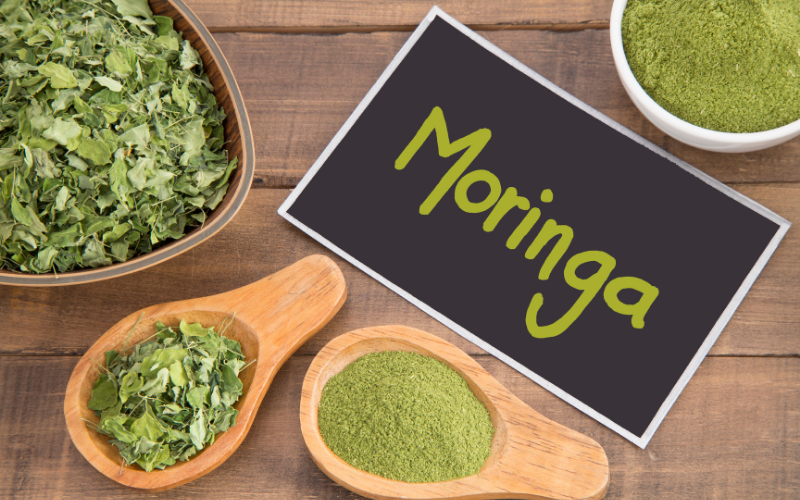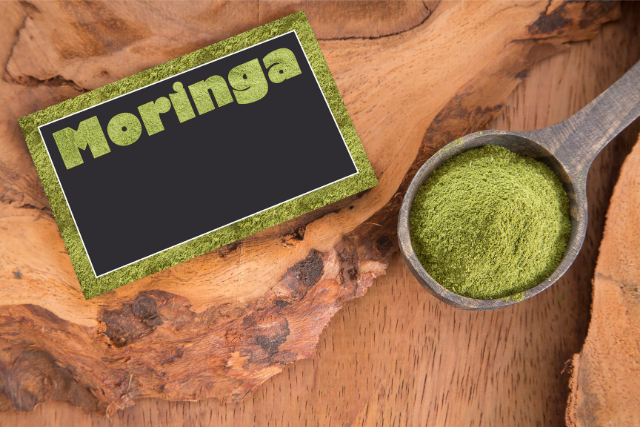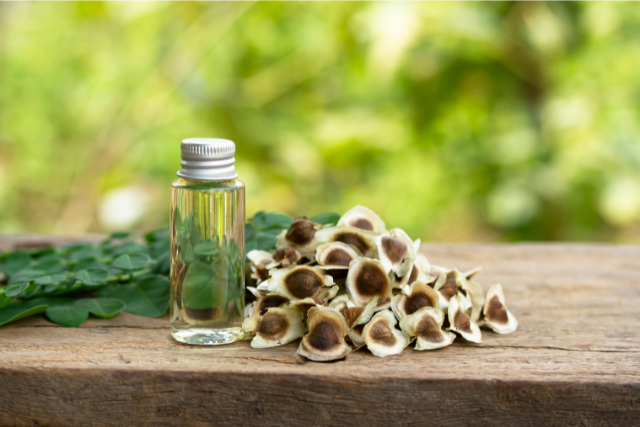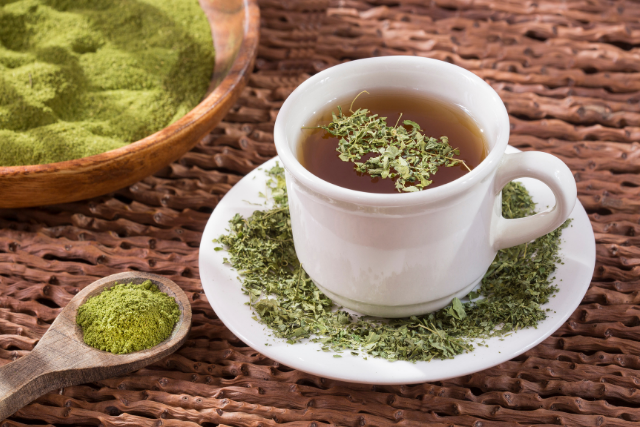Moringa “Miracle Tree” benefits for health

Moringa is often spotted in multiple humble abodes across India and people love the vegetable it grows, “drumstick”. While we focus on the vegetable it bears, we stay unaware of the medicinal benefits of the plant. Ayurveda has identified Moringa as a superfood and it has created a niche for itself in the list of healthy foods.
Every part of this plant is useful and has multiple nutrients, vitamins, and minerals to offer and that has made it popular in Ayurveda. Superfood culture is on the rise for health-conscious citizens and the miracle tree has definitely made its place.


What is Moringa?
The name Moringa comes from the Tamil word Murungai which essentially means drumstick. The scientific name given to the miracle tree is, Moringa Oleifera. A few other names used to denote the tree is the moringa tree, the drumstick tree, Ben oil tree, or the horseradish tree.
Moringa has been native to the foothills of north western India. However, as it has some additional established perks of being a valuable, drought-resistant, multi-purpose crop, it has found a home across the world and is now grown across Asia, Africa, Egypt etc. Also, the superfood status that moringa has earned, was compelling enough for people to add this crop to their farms, greenhouses, and backyards.
Belonging to the flowering plant family Moringaceae, the crop’s medicinal properties have been used from ancient times. Multiple parts of the tree, specifically the drumstick leaves, fruit, oil extract, have numerous benefits attached to them, including, but not limited to the digestive, heart, and circulatory system.
The Miracle Tree
Moringa is cultivated throughout India and now the world, especially for the health-related benefits it possesses. Cultivating the crops is also fairly easy as well, since it is not affected by lack of rainfall, and can grow in highly arid regions. It can easily grow in a wide range of soils right from old, depleted pasture land to lands bordering desertification.
Moringa has many important nutrients and these includes, vitamin A, vitamin B1 (thiamine), B2 (riboflavin), B3 (niacin), B-6, folate and ascorbic acid (vitamin C), calcium, potassium, iron, magnesium, phosphorus, zinc. The crop is immensely low in fats and cholesterol.
Most of the Moringa parts are edible, while the part the steals the show for excessive nutrients, is leaves. It is believed that the leaves have more Vitamin C (Up to 7times) than oranges. Raw leaves are cooked and eaten or dried, powdered, and added into soups, curries, sauces, tea, and more.
The seeds, on the other front, are also consumed as food or used to extract Ben oil. The seed pods are either boiled and used in soups and curries or are cooked, roasted, and consumed like nuts. Ben oil on the other end can be used for consumption in the form of salad oil or can be used to make soaps or start a fire, i.e., as burning fuel. Other uses include a base for perfume and lubricating oil for machines.
What’s surprising is the roots of the Moringa tree, which has roots similar to horseradish. They can be shredded and used as a condiment. Summing up the uses of this crop, it can be used for culinary, agricultural, livestock, medicinal, and other purposes.
Health benefits of Moringa
The benefits of Moringa are not limited to medicinal benefits, but it also contains several beauty benefits. We would want you to focus on the parts of the plant and understand how you can absorb the benefits to the maximum extent. Here are some of the benefits you would love to know about: –
Beauty care
The essential components of Moringa seed oil helps you keep your skin clean and healthy. The proteins from the plants actually help your skin recover from any damage caused to skin cells. The hydrating and detoxifying elements on the other hand are quite beneficial for your skin and hair. You can count on the herb to cure skin infections and sores.


Liver and Cancer treatment
You may fairly protect your liver and may shield yourself from cancer with this herb. Moringa appears to protect a person from any damage caused to liver, especially the one from anti-tubercular drugs. Its properties also may also help us to fight cancer as it contains anticancer compounds, known to suppress the development of cancer cells, and built immunity.
Diabetes
Moringa helps in the process of lowering glucose in the blood and maintain the appropriate ratio of sugar and protein in the urine.
Cardiovascular System
Moringa contains antioxidant properties, which shield a person from cardiac damage, and helps maintain a healthy heart.
Healthier Bones
Bone strength can be built with calcium and phosphorous that Moringa contains. It also contains anti-inflammatory properties which may be perfectly be put to use for the treatment of conditions like arthritis. The herb has the power to heal damaged bones as well.
Some other benefits we derive from the herb include treating edema, stomach complaints, bacterial diseases (like Salmonella, Rhizopus, and E. coli), mood disorder, wounds, asthma, kidney disorders, blood pressure, eye, anaemia and sickle cell disease.
Uses of moringa – How to include Moringa in your diet
The key is to use “Freshly” cut part of the tree for maximum health benefits. With the emphasis being on the word ‘fresh’. In case you do get tender leaves and seed pods from the crops you cultivated or from the market, make sure you remove the stems before use as they can be a bit hard.
You can easily substitute spinach with Moringa leaves for a quick, healthy culinary delight. The seed pods essentially can be used in a stew as it adds a fleshy meat texture. If your ideas of eating healthy is salads, you can also add the leaves and seed pods of Moringa to your salad. The roots however contain a horseradish-type texture and lets you add the roots as dressing to any meal.
If you cannot get your hands on fresh Moringa leaves, you can opt for a substitute. Many suppliers sell, Moringa leaves powder, that you can purchase and instantly use in your dishes.


You can simply sprinkle the Moringa powder on your food in a similar manner as you add green salt or pepper. The best use case would be to add a spoonful of Moringa powder to your soup or stew, which is equivalent to adding a heap of nutrients, with no alteration to the original taste. Furthermore, you can add the powder to tea or smoothies that you love consuming.
Side effects of Moringa
With the natural health benefits this crop possesses, it is still advisable to consult a doctor first before usage. Another side effect attached to the use of Moringa is due to its anti-fertility properties. Hence pregnant women are strongly advised to refrain from using it.
While using the medicines that contain Moringa, check the dosage and other components thoroughly before use, preferably with a physician. Though Moringa does not contain a lot of side effects to worry about, it is always good to be cautious and observe yourself for any adverse reactions when you start the use of it.
Conclusion
Moringa is indeed the superfood that you can add to your diet and sit back to witness the health benefits kicking in. And there we have our answer to why this crop is called the “Miracle Tree”. Tiny bits of the crop put to use every day can give you a significant amount of boost in nutrients.









